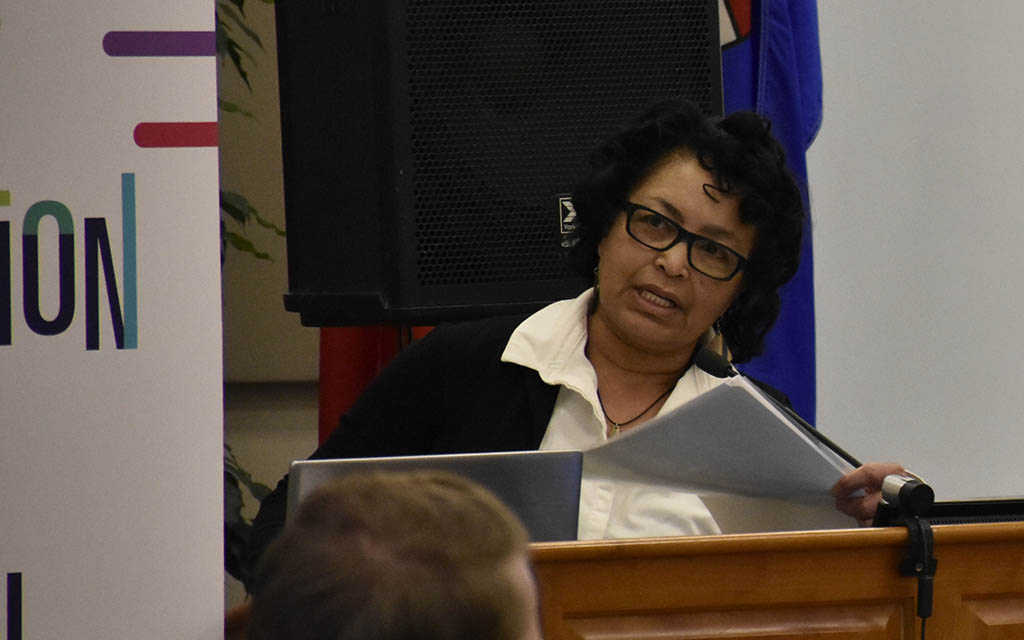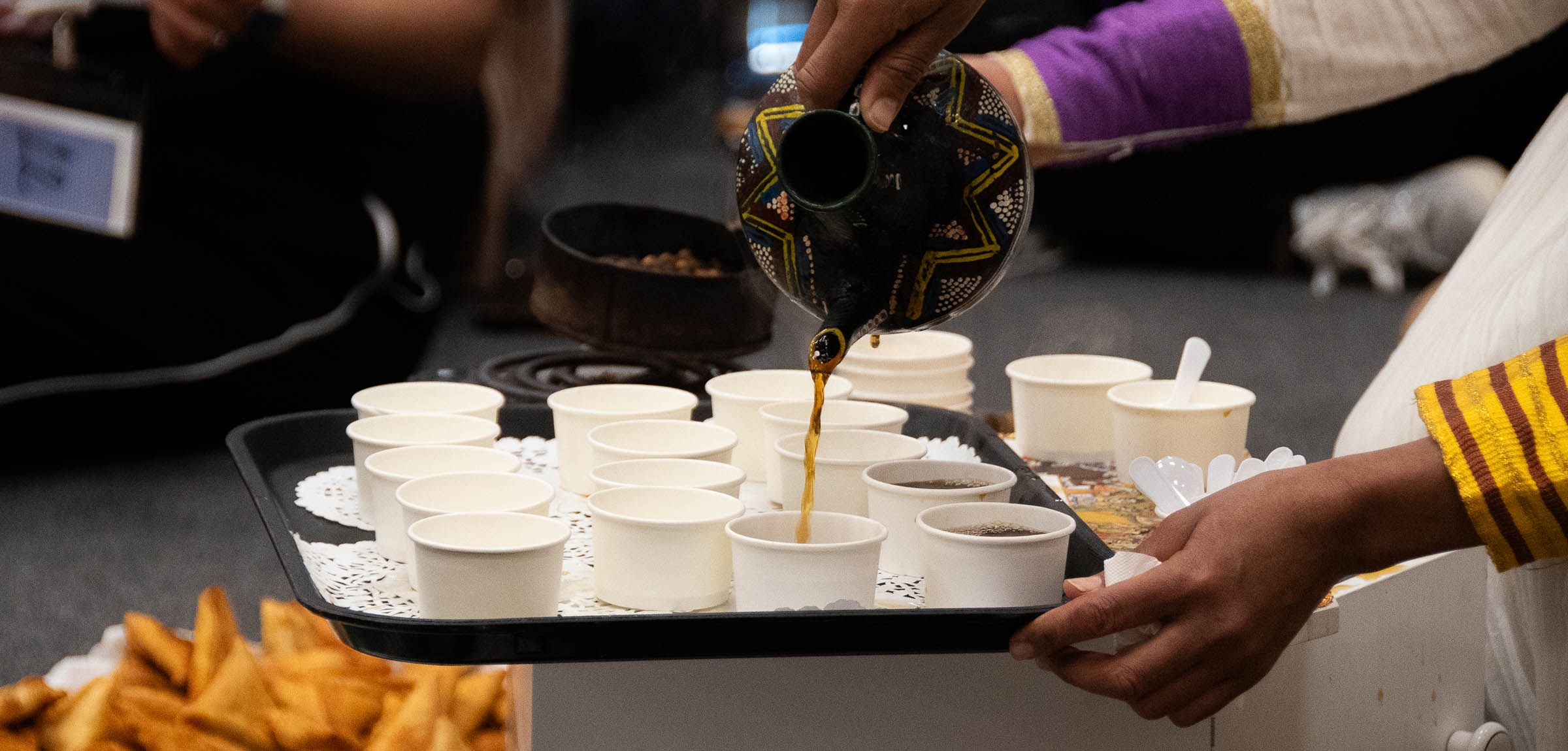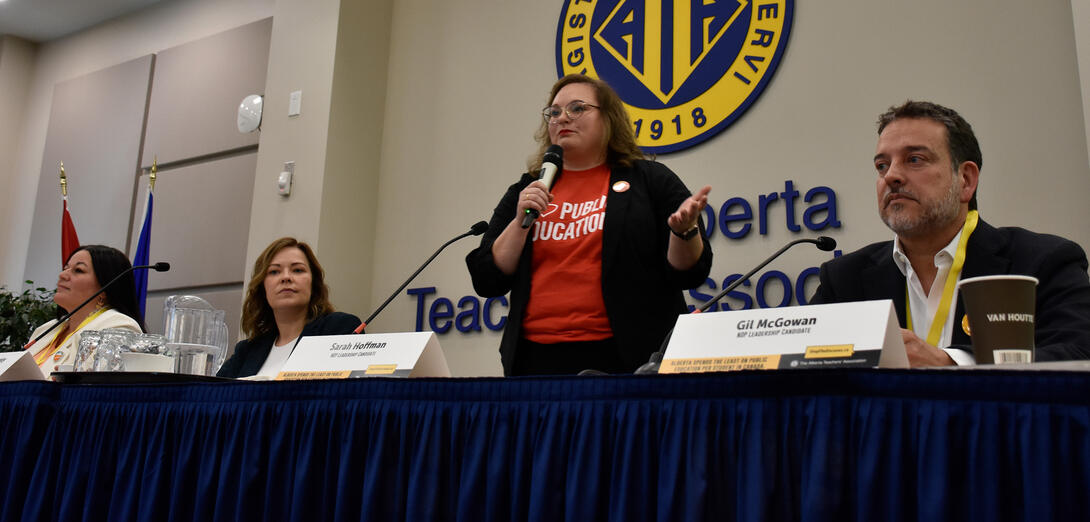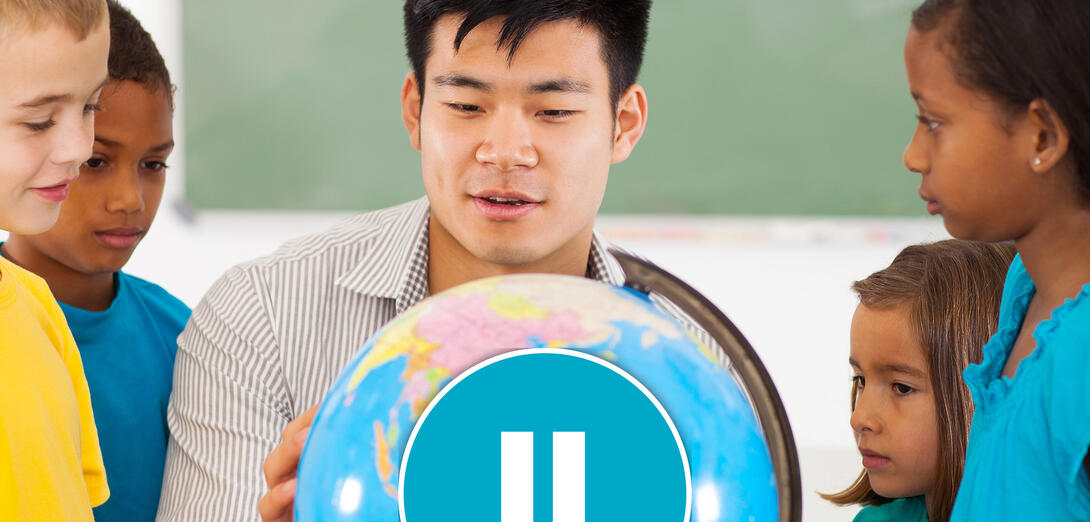Take intentional steps to move toward hope, equity and inclusion in these challenging times. That was a key takeaway from the 11th annual Diversity, Equity and Human Rights (DEHR) Conference for Locals, held April 18 to 19 in Edmonton.
More than 100 members from across the province gathered for the conference, which is held each year to support local DEHR committees and their teacher-volunteers in their efforts to strengthen equity and inclusion. This year’s theme of “Upholding Human Rights in Challenging Landscapes” offered delegates the opportunity to reflect on how they can spark and sustain change in a context marked by divisiveness.
Opening the conference, ATA president Jason Schilling emphasized the importance of the work that local DEHR committees are undertaking as he spoke about recent attacks on marginalized groups in the province.
“True diversity can only flourish when we actively work to break down barriers, confront inequities and challenge biases,” Schilling said, “Not only our own biases but those of others as well.”
To support the ongoing efforts of DEHR leaders, staff from the John Humphrey Centre for Peace and Human Rights — co-sponsor for this year’s conference — were on hand to share resources and learning tools on diversity, equity and inclusion.
The conference also offered breakout sessions on such topics as ableism, supporting Muslim colleagues and students, a traditional Habesha coffee ceremony, a panel session and networking opportunities to deepen knowledge and understanding of various dimensions of diversity.
Engaging in events like this and continuing to advocate for human rights builds hope, Schilling said.
“Hope comes to light when we work together toward something brighter and better, but it’s not simply enough to hope for change, we actively have to work for that together.”
Black lives in Alberta

The conference included a film study introduced by former teacher Deborah Dobbins, who is now a cultural and special education consultant and the chief executive officer of the Shiloh Centre for Multicultural Roots.
The grassroots documentary, Black Lives in Alberta: Over a Century of Racial Injustice Continues, shares the story of five generations of Black Albertans and the discrimination they faced. The project holds special meaning for Dobbins, one of the film’s directors and a third generation African American Albertan.
“Coming to the West meant freedom from the laws of segregation, but not from prejudice, discrimination and oppression,” she shared.
Dobbins spoke of her own family’s journey, from her grandparents’ experiences as Black settlers in Alberta to the racial discrimination her mother and aunts experienced as Black teachers in rural and urban schools in the province.
For Dobbins, these stories are important to share, as knowing our own past and our collective history can help us move toward fairness and, ultimately, hope.
“I just want to make sure that our young people know our roots — and also newcomers who come from the continent of Africa and Caribbean places — that they know that there were roots here in Alberta long before us.”
Rwandan-Canadian hip hop artist provides student perspective

Wrapping up the conference, Rwandan-Canadian hip hop artist and motivational speaker Ntwali Kayijaho shared his story growing up as a Black student in Canada.
Kayijaho recounted the different pressures and expectations he faced — from parents, friends, teachers — and how his path to finishing school was not easy.
“Failure is the best tool,” he told attendees, “Because it shows you what you need to improve on, but it also shows what kind of person you are. True failure is quitting, and I didn’t quit. I didn’t give up.”
Kayijaho shared how his struggles as a student and young adult became opportunities to learn about himself, dig in and build resilience. He spoke on how he is now able to impact others through his socially conscious lyrics and performances as an emerging hip hop artist, his social activism and his motivational presentations to students.
Reflecting on his journey, Kayijaho shared a word of advice with the teachers in the room.
“Show those kids you are there for them,” he said, “If a kid is lost or is failing, doesn’t know what he’s doing or if he needs help, give him a chance. You don’t know who he’ll become.” ❚



